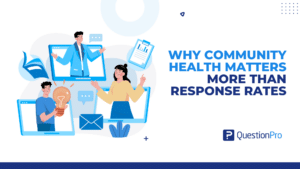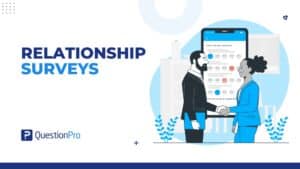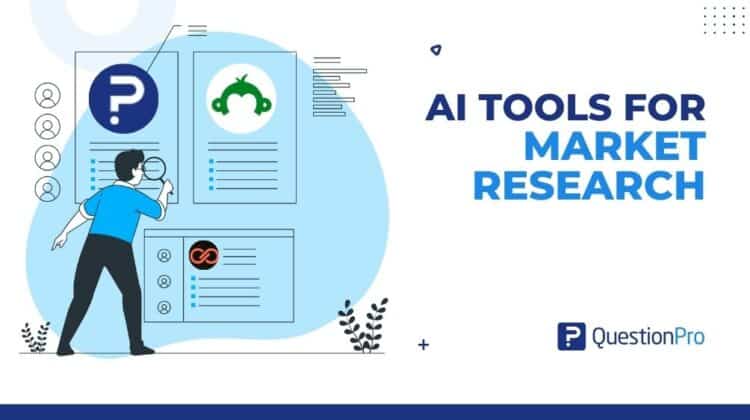
The way research teams gather and understand market data is changing fast. AI tools for market research are enabling companies to go beyond traditional methods and explore vast datasets in minutes, rather than weeks.
From analyzing social media posts to running AI-powered surveys, these tools can uncover consumer sentiment, track emerging trends, and deliver actionable insights without draining time or resources.
Today’s market researchers are using artificial intelligence, machine learning, and natural language processing to predict market trends, identify key insights, and shape marketing strategies with confidence.
From pricing strategies to sentiment analysis, AI makes the market research process faster, smarter, and more efficient. Through this article, we will explore the 10 best AI tools for market research, how to use them, and best practices for your research.
What are the Uses of AI Tools in Market Research?
AI is reshaping the market research process, making it easier for research teams and marketing teams to collect, analyze, and act on market data.
Rather than depending only on traditional methods like focus groups or manual data collection, AI-powered tools can handle vast amounts of information, uncover consumer insights, and reveal key trends in real time.
Some of the most common uses include:
- Survey creation and optimization: Platforms like AI-powered surveys help design questions, test them, and improve response rates.
- Sentiment analysis: Scan social media posts, reviews, and consumer feedback to measure consumer sentiment toward brands or products.
- Predictive analytics: Use AI algorithms and machine learning to predict market trends, anticipate consumer behavior, and test pricing strategies.
- Competitive intelligence: Monitor competitors through competitive benchmarking and competitive analysis to spot emerging trends.
- Data visualization and extraction: Turn vast datasets into clear visuals that support strategic decision making.
By automating repetitive tasks and providing deeper insights, AI-driven market research allows market researchers to focus on delivering actionable consumer insights and building stronger marketing strategies with fewer resources.
10 Best AI Tools for Market Research
AI offers a broad range of software platforms that support different stages of the market research process, from survey creation and data analysis to competitive intelligence and secondary research. Below are the main categories and examples of AI market research tools used by research teams and marketing teams today.
01. QuestionPro AI
QuestionPro AI combines survey creation and real-time analytics in one market research tool. It generates targeted questions based on research objectives, validates designs, and provides instant dashboards for analysis.
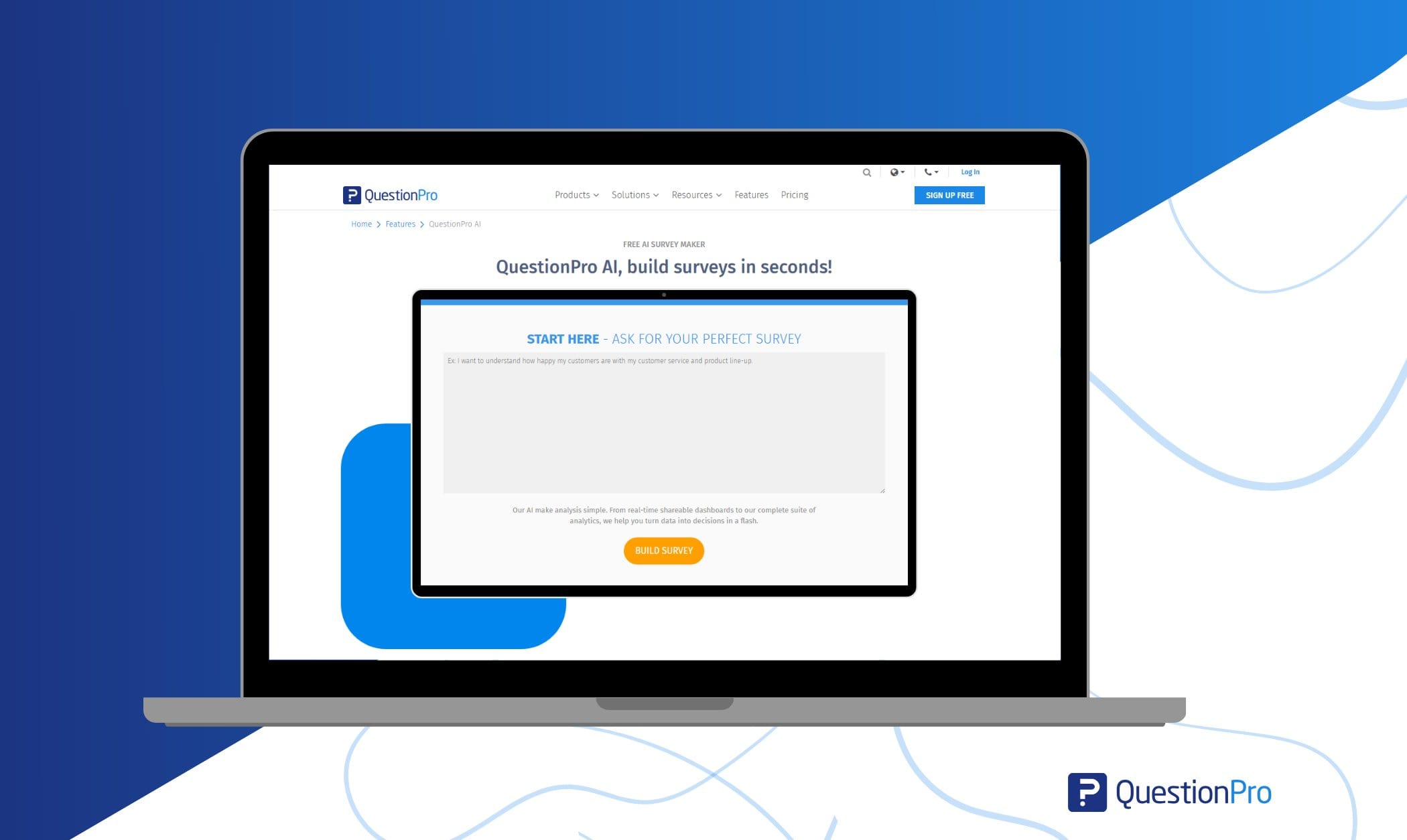
Features:
- AI-powered survey generation
- 300+ research templates
- Advanced logic and branching
- Real-time analytics dashboard
- GDPR/CCPA compliant
- Multi-language support
Limitations:
- No built-in qualitative interview transcription
Pricing: Starts at $99/month for advanced survey features.
Recommended Read: AI Question Generator: Create Easy + Accurate Tests and Surveys
02. Qualtrics XM
Qualtrics XM uses AI algorithms to optimize surveys, automate data quality checks, and apply predictive analytics for spotting market trends. It’s well-suited for large-scale, customized research programs.
Features:
- Predictive modeling to predict market trends
- Automated data quality checks
- Customizable workflows
- Strong integration capabilities with CRM and marketing tools
- Multiple languages supported
Limitations:
- Higher pricing for advanced AI features
- Complex interface for beginners
Pricing: Pricing plans are available upon request.
Recommended Read: Qualtrics Alternatives: Complete Analysis + Top 10 Best
03. Alchemer
Alchemer offers AI-powered survey creation and analytics with a focus on customer feedback and market research. It supports sentiment analysis for open-text responses.
Features:
- AI text sentiment analysis
- Question auto-suggestions
- Custom dashboard reports
- API integrations for CRM tools
Limitations:
- Limited analytics depth for large datasets
- No built-in advanced predictive modeling
- Some AI features require higher-priced plans
Pricing: Pricing plans are available upon request.
04. SurveyMonkey Genius
SurveyMonkey Genius uses AI to review survey design, suggest improvements, and predict response rates. Great for teams looking for quick survey launches with improved accuracy.
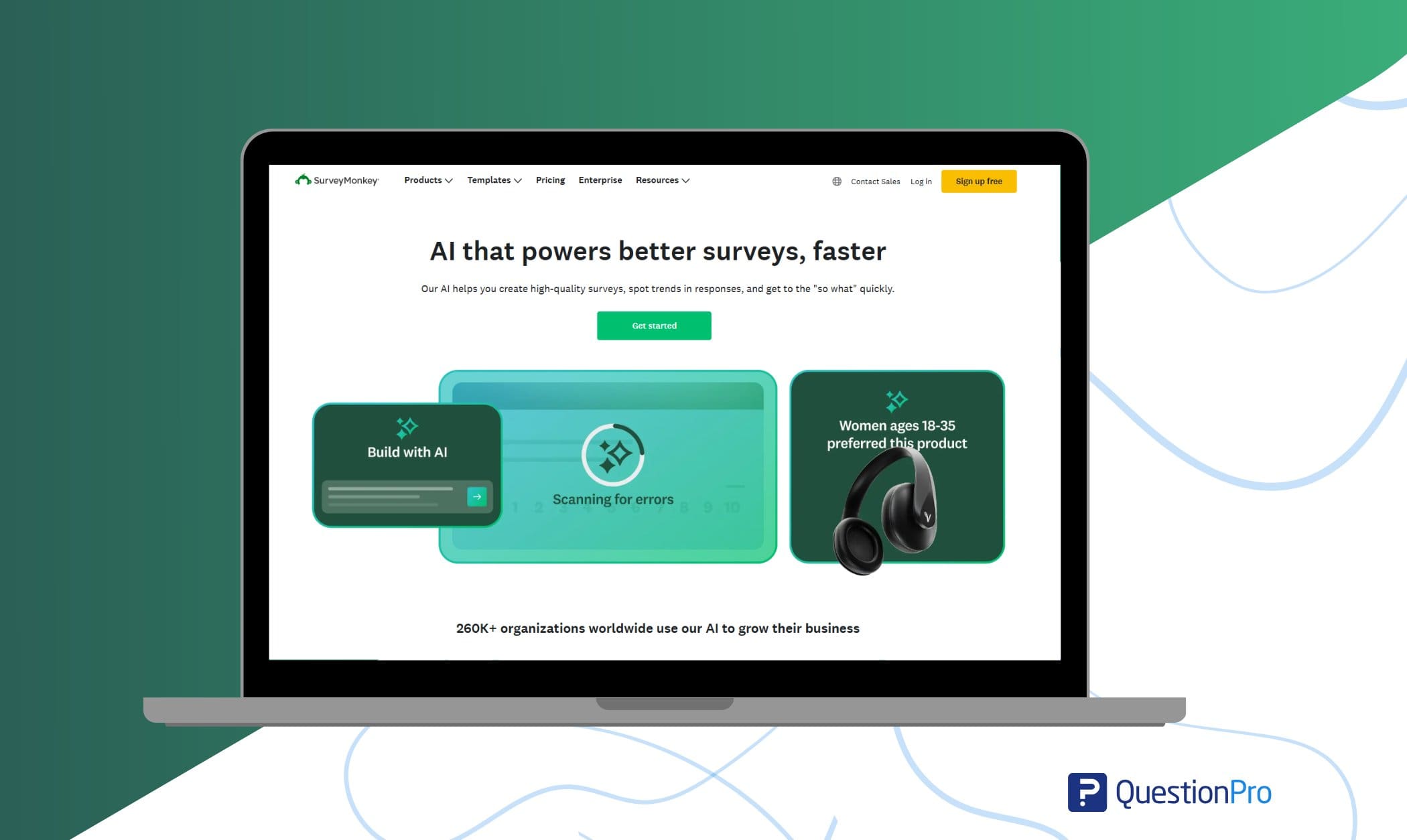
Features:
- AI survey quality scoring
- Automated question wording suggestions
- Template library with industry-specific surveys
- Real-time data visualization
- Multi-language support
Limitations:
- Fewer customization options than competitors
- No integrated predictive analytics
Pricing: Pricing plans are available upon request.
Also Read: QuestionPro vs SurveyMonkey: Software Comparison
05. Forsta Surveys
Forsta combines survey creation with AI-powered analytics to help uncover deeper insights. Its platform focuses on advanced segmentation and visualization.
Features:
- AI-driven data categorization
- Survey templates for multiple industries
- Drag-and-drop survey builder
- Real-time dashboards
- Integration with CX/EX platforms
Limitations:
- Limited pre-built templates compared to competitors
- Pricing for AI features is add-on-based
Pricing: Pricing plans are available upon request.
06. Zoho Survey with Zia AI
Zoho Survey integrates with Zia AI to offer smart question recommendations, predictive insights, and sentiment analysis. Ideal for existing Zoho ecosystem users.
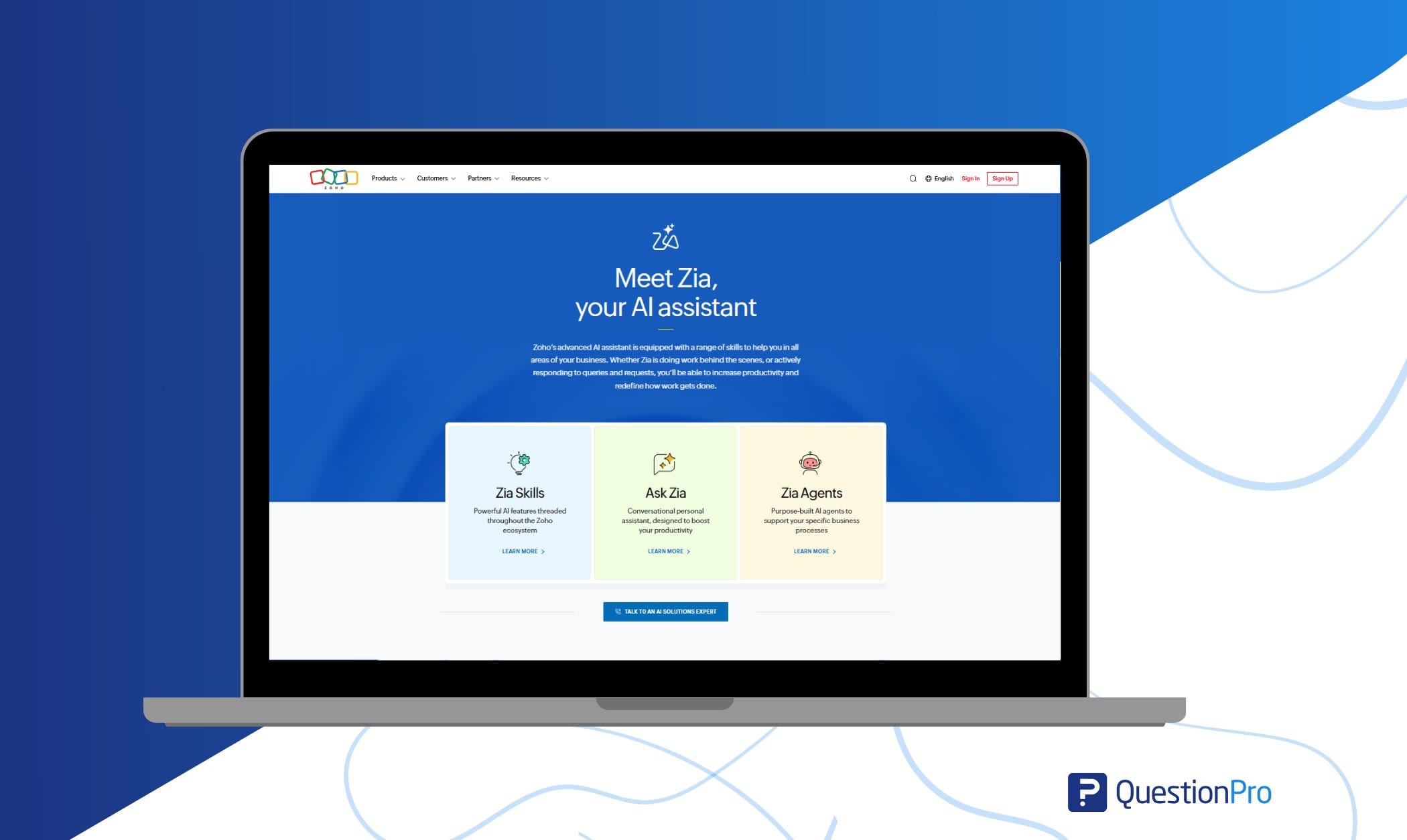
Features:
- AI-powered question suggestions
- Predictive analytics on survey results
- Advanced reporting tools
- Multi-language support
- Seamless Zoho CRM integration
Limitations:
- Limited predictive capabilities
- AI text analysis accuracy depends on language complexity
Pricing: Pricing plans are available upon request.
Also Read: 5 Best Zoho Survey Alternative in 2025
07. AYTM (Ask Your Target Market)
AYTM uses AI to match your target audience, design surveys, and generate quick insights, making it great for rapid consumer research.
Features:
- Automated audience targeting
- AI question recommendations
- Real-time reporting
- Integration with analytics platforms
Limitations:
- Limited customization for advanced surveys
- Pricing can increase with larger samples
Pricing: Starts at $150/month.
08. SurveySparrow AI
SurveySparrow uses AI for both conversational survey design and in-depth analytics, focusing on improving completion rates and actionable insights.
Features:
- Conversational AI for surveys
- AI-generated survey templates
- Data visualization and trend spotting
- NPS and CSAT measurement tools
- Integrations with CRM and marketing platforms
Limitations:
- Limited predictive modeling features
Pricing: From $19/month
09. Sogolytics AI
Sogolytics uses AI to help design surveys, detect data anomalies, and perform text analytics on open-ended responses.
Features:
- AI-powered survey design assistant
- Text sentiment and keyword extraction
- Automated data quality alerts
- Real-time reporting
- Integration with CRM and BI tools
Limitations:
- The interface is less suitable
Pricing: From $25/month
10. Crayon
Crayon is an AI-powered competitive intelligence platform that tracks competitors’ activities and market movements, offering insights for positioning and strategy.
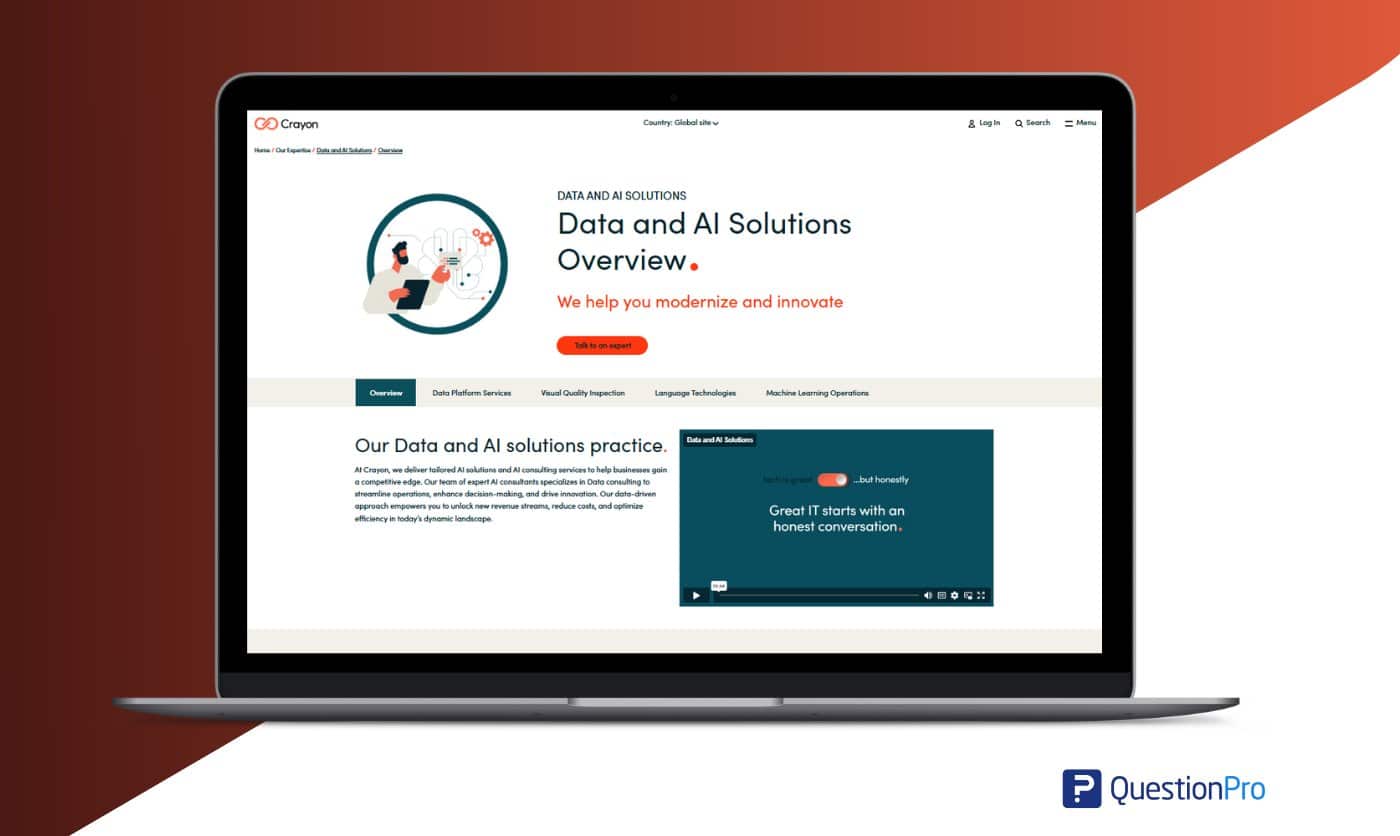
Features:
- AI-powered change detection on competitor websites
- Automated market trend analysis
- Alerts for competitor product launches or campaigns
- Historical data comparison
Limitations:
- Focuses more on competitive intel than direct consumer research
- Requires time to set up tracking preferences
Pricing: Available upon request
Also Read: Top 5 AI Tools for Business and Uses for Research
Comparing AI Market Research Tools to Help Choose the Right One
With so many AI tools available for market research, it can be challenging to find the one that fits your research needs, budget, and data requirements best. Here’s a side-by-side look at the leading platforms.
| Tool | Key Features | Cons | G2 Ratings (Out of 5) | Pricing |
QuestionPro AI | AI-powered survey generation, 300+ templates, advanced logic and branching, real-time analytics dashboard, GDPR/CCPA compliant. | No built-in qualitative transcription. | 4.5 | Starts at $99/month |
| Qualtrics XM | Predictive modeling, automated data quality checks, customizable workflows, CRM and marketing tool integrations. | Expensive advanced AI features, complex for beginners. | 4.3 | Custom pricing on request |
| Alchemer | AI sentiment analysis, question auto-suggestions, custom dashboards, CRM integrations. | Limited analytics depth for large datasets. | 4.4 | Custom pricing on request |
| SurveyMonkey Genius | AI survey scoring, question wording suggestions, industry-specific templates, real-time visualization. | Fewer customization options, lacks predictive analytics. | 4.4 | Custom pricing on request |
| Forsta Surveys | AI-driven data categorization, real-time dashboards, CX/EX platform integration, multi-industry templates. | Fewer pre-built templates, AI add-ons cost extra. | 4.2 | Custom pricing on request |
| Zoho Survey (Zia AI) | Smart question recommendations, predictive insights, sentiment analysis, CRM integration, multi-language. | Limited predictive capabilities, text analysis depends on language. | 4.4 | Custom pricing on request |
| AYTM | Automated audience targeting, AI question generation, real-time reporting, analytics integration. | Limited customization for advanced surveys, higher cost for large samples. | 4.7 | Starts at $150/month |
| SurveySparrow AI | Conversational surveys, AI-generated templates, NPS/CSAT , CRM integrations. | Limited predictive modeling features. | 4.4 | From $19/month |
| Sogolytics AI | AI design assistant, sentiment and keyword extraction, data anomaly detection, real-time reporting. | Interface less intuitive for beginners. | 4.6 | From $25/month |
| Crayon | Competitive intelligence tracking, AI change detection, market trend alerts, historical comparisons. | Focused on competitor insights rather than direct consumer feedback. | 4.4 | Custom pricing on request |
Key Features of AI Tools for Market Research
The best AI market research tools bring together automation, intelligence, and flexibility to help research teams and marketing teams turn vast datasets into actionable consumer insights. Here’s what to look for:
- AI-Powered Survey Creation
Generate survey questions tailored to specific research objectives. Access a broad range of market research templates and design AI-powered surveys that improve data quality and capture valuable consumer insights.
- Synthetic Data Simulation
Run simulations to test pricing strategies, forecast consumer behavior, and check how responses might vary across different segments before launching your survey.
- Sentiment Analysis and Social Listening
Monitor social media posts, reviews, and other online conversations. Use natural language processing to detect consumer sentiment, identify emerging trends, and uncover opportunities for marketing strategies.
- Predictive Analytics
Apply AI algorithms and machine learning models to predict market trends, anticipate customer behavior, and inform strategic decision-making.
- Data Analysis and Visualization
Turn vast amounts of raw data into clear data visualizations and dashboards that make it easy to spot key trends and support data-driven decision making.
- Integration Capabilities
Connect with CRMs, marketing tools, and competitive intelligence platforms to streamline the market research process and keep all data in one place.
When combined, these features give market researchers the ability to move from data collection to deeper, more qualitative insights, while saving time, reducing costs, and delivering results that drive real impact.
Best Practices for Using AI in Market Research
AI can make your market research process faster and more insightful, but it works best when paired with human judgment. Here are a few tips to get the most out of your AI-powered tools:
- Validate AI-generated insights with real data: Use AI to guide your thinking, but confirm findings with actual market data from trusted sources. This keeps your conclusions accurate and credible.
- Don’t over-rely on AI: AI is great at handling repetitive tasks and spotting key trends, but human oversight is essential for context, nuance, and qualitative insights.
- Stay compliant with data regulations: Whether you’re collecting surveys or analyzing social media posts, make sure your work aligns with GDPR, CCPA, or other relevant privacy laws.
- Check synthetic data for representativeness: If you use synthetic datasets for testing pricing strategies or predicting consumer behavior, ensure they reflect the real audience you want to study.
- Write specific prompts and queries: AI responds best when you’re clear and detailed. Specific questions lead to better actionable insights and more relevant results.
Following these practices helps you balance AI’s speed and scale with human expertise, the combination that delivers truly reliable research.
How QuestionPro AI Can Advance Your Market Research
QuestionPro AI combines the most important capabilities of leading AI market research tools into a single platform, helping you move from data collection to actionable consumer insights at less cost than many enterprise alternatives.
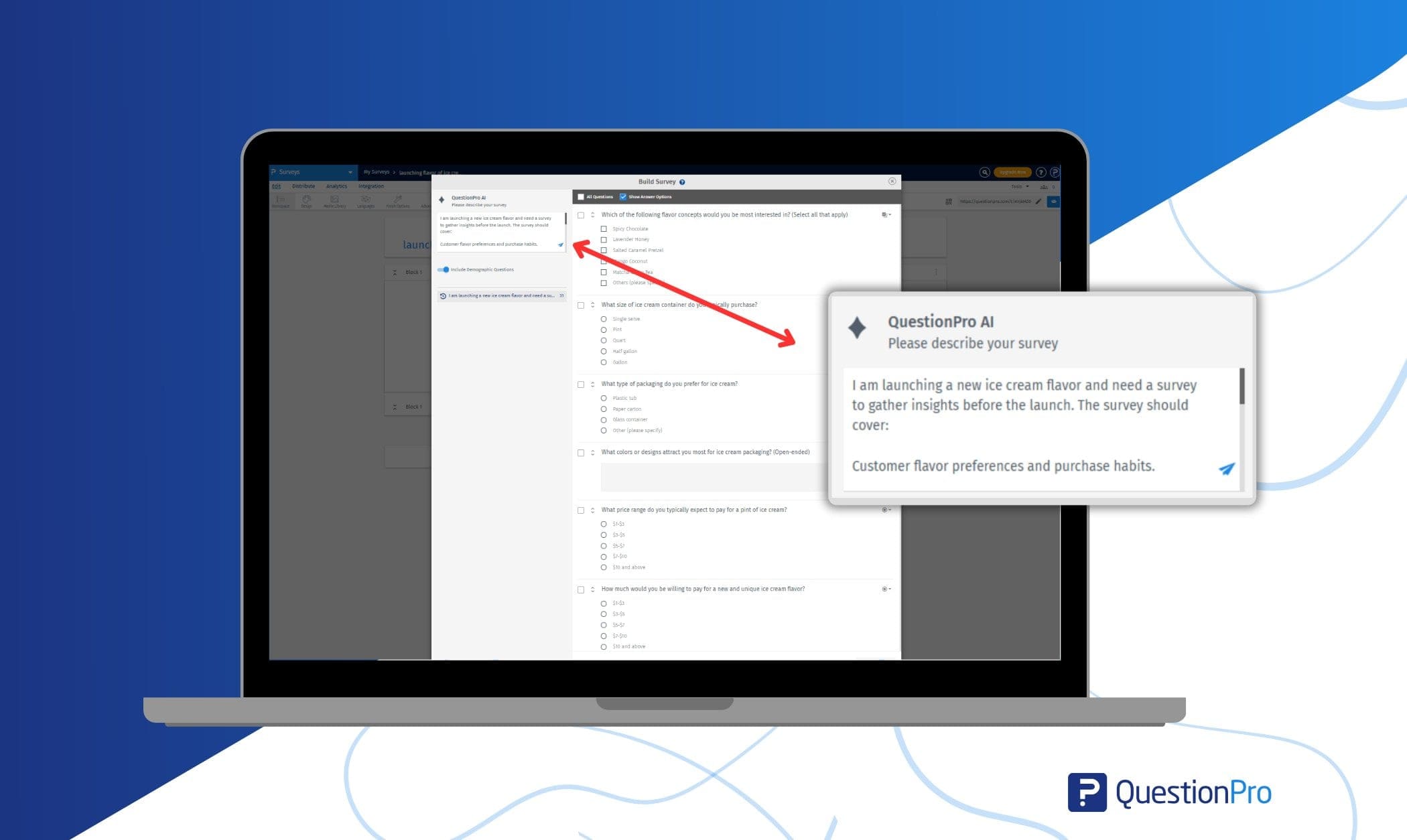
Key ways it can advance your market research:
- AI-Powered Survey Creation: Provide your topic and research description to QuestionPro AI, and it will automatically generate a tailored survey for you. You can also choose from QuestionPro’s ready-to-use market research templates to save time and ensure quality question design.
- Synthetic Data Simulation: Use QuestionPro to run test surveys with synthetic data, allowing you to forecast consumer behavior, evaluate pricing strategies, and refine your questionnaire before launch to minimize risk.
- Real-Time Analytics Dashboard: With QuestionPro, you can instantly transform survey responses into clear, interactive visualizations that reveal key trends, patterns, and emerging market opportunities.
- Predictive Analytics: QuestionPro can help you to forecast market shifts, track sentiment, and uncover qualitative insights from open-ended responses.
- Lower Overall Cost: Access all of QuestionPro’s features to make advanced research more budget-friendly for both research and marketing teams.
By combining these features, QuestionPro helps you gather insights faster, automate repetitive tasks, and make confident, data-driven decisions without overspending.
Conclusion
AI in market research is no longer just a trend. It’s changing how we collect, analyze, and use consumer insights. In this article, we described different AI tools, how to use them well, and how to keep results accurate and compliant.
With QuestionPro AI, you can create surveys in seconds, run predictive analytics, and test market strategies before launch. It’s all in one place and costs less than many big-name platforms. You also get real-time dashboards, synthetic data modeling, and smooth integrations to work faster and smarter.
The real power comes when you combine these tools with your own expertise. That’s how you find hidden opportunities, react quickly to changes, and make confident decisions without overspending.
Frequently Asked Questions (FAQs)
Answer: AI can save time, lower costs, improve accuracy, and help uncover insights that might be missed with manual analysis.
Answer: Some top tools include QuestionPro AI, Qualtrics XM, SurveyMonkey Genius, and Typeform AI. Each offers unique features for survey creation, analysis, and predictive insights.
Answer: AI-powered platforms can generate relevant questions based on your goals, recommend the best survey structure, and apply advanced logic to improve data quality.
Answer: No. AI works best as a support tool. Human oversight ensures accuracy, ethical compliance, and context-specific decision-making.
Answer: Not always. Some tools, like QuestionPro AI, offer powerful features at a lower cost compared to enterprise alternatives.
Answer: Risks include data privacy concerns, bias in AI algorithms, over-reliance on automated outputs, and potential inaccuracies in synthetic data.





